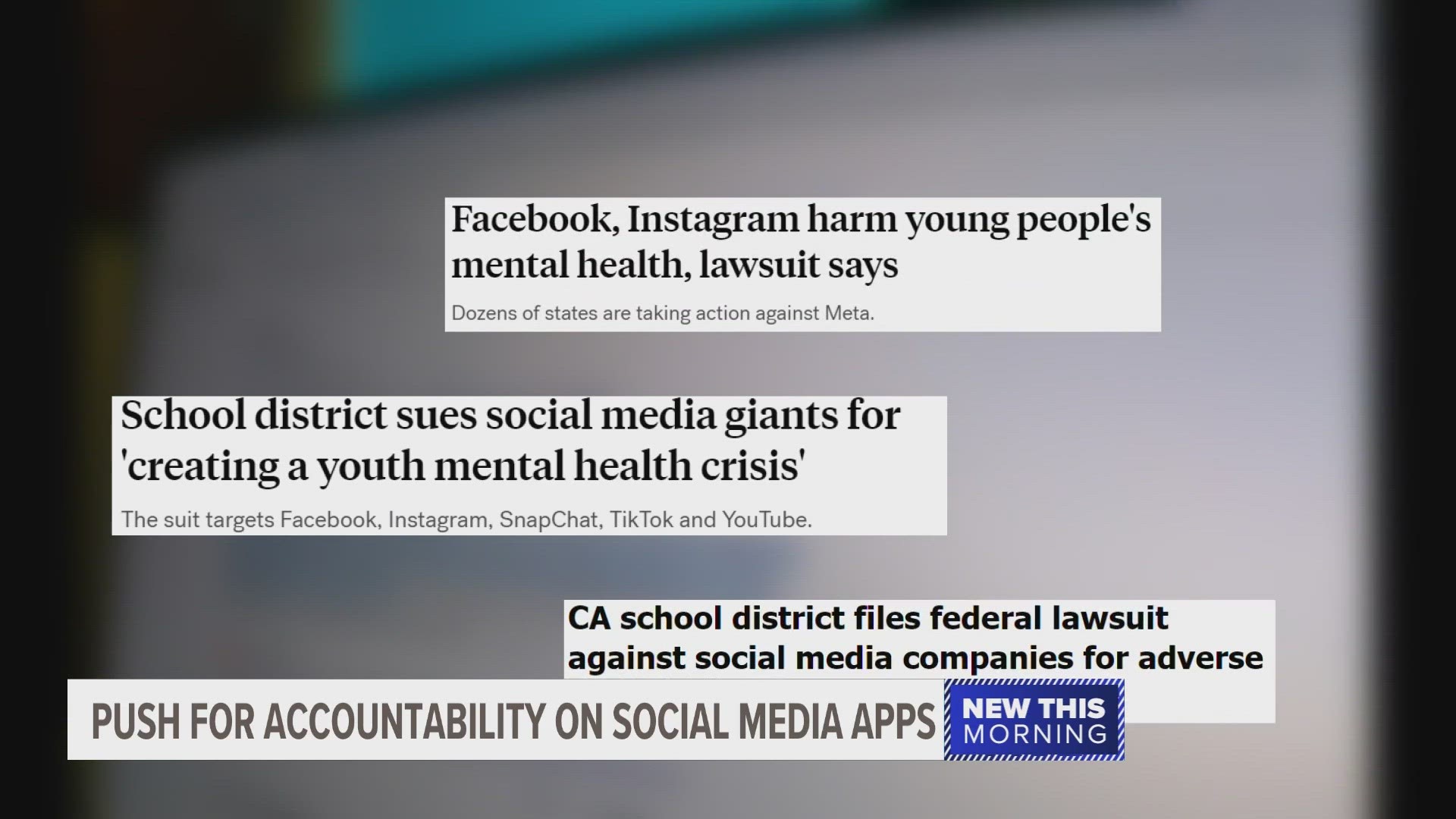GRAND RAPIDS, Mich — Both parents and kids are no strangers to the dangers of the internet, but an increase in online hate is a growing concern getting the attention of experts.
The Anti-Defamation League found that 52% of adults reported being harassed online, up from 40% in 2022.
Oliver Haimson sees this firsthand in his research at the University of Michigan School of Information.
"When you don't see people face to face, it can be often easier to be more critical or to be more mean than you would be in a physical world interaction," Haimson said. "This is actually has a name. It's called the online disinhibition effect."
David Fair, the cantor and school educator at Temple Emanuel in Grand Rapids, sees this too, on his public social media accounts.
Fair posted a video on TikTok, responding to a comment he had received on a previous video where he explained the differences between race, ethnicity, color and culture.
"When you're thinking of someone in a part of the country that has very few Jews, and they're curious as to what Jewish people are all about, their access is through the online world," Fair said.
The commenter used the word "goyim," a Hebrew word flagged by TikTok as violating community guidelines.
Though you cannot search the word on TikTok, the Anti-Defamation League found that if you find a video with that hashtag already associated, you can still click on it to access related content.
"Essentially, what we're doing is we are letting these social media platforms determine what is and is not okay for kids to see," Haimson said.
Parents are now pushing for accountability from social media apps, both at the national level and in Michigan. Back in May, Cadillac Area Public Schools joined a class action suit starting in Washington, gaining support from schools nationwide.
ABC News quoted the suit, saying Seattle Public Schools wants to hold the companies "accountable for the harm they have wreaked on the social, emotional, and mental health of its students."
The suit targets not just TikTok, but also Instagram, Snapchat and YouTube. 13 ON YOUR SIDE reached out to Cadillac's superintendent, but there was no update on the state of the suit.
"I would argue that it's definitely on the onus of TikTok and other social media platforms to eliminate any type of anything that reads as hateful," Fair said. "The solution is not get rid of TikTok. It's make TikTok better."
Both Fair and Haimson agree that social media also offers a place for marginalized communities to find support.
"Especially for marginalized groups, like LGBTQ people, online communities can be really great for them to be able to meet other people who are like them and who have similar identities," Haimson said. "So even though there is a lot of online harassment and and hate and a lot of things that makes these online environments really distressing for them, for many people, it's still worth it."
Haimson and his team at the University of Michigan created a website to learn about social media guidelines, called the Online Identity Help Center.
►Make it easy to keep up to date with more stories like this. Download the 13 ON YOUR SIDE app now.
Have a news tip? Email news@13onyourside.com, visit our Facebook page or Twitter. Subscribe to our YouTube channel.

